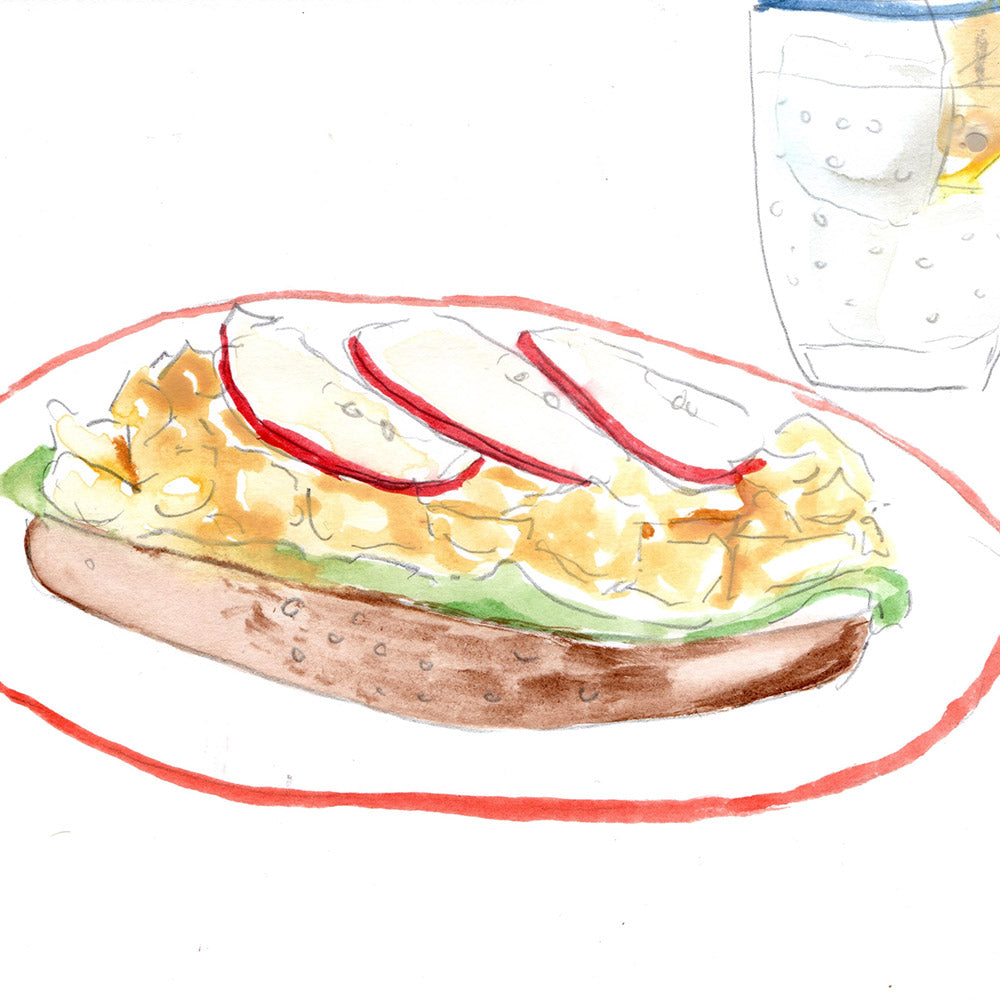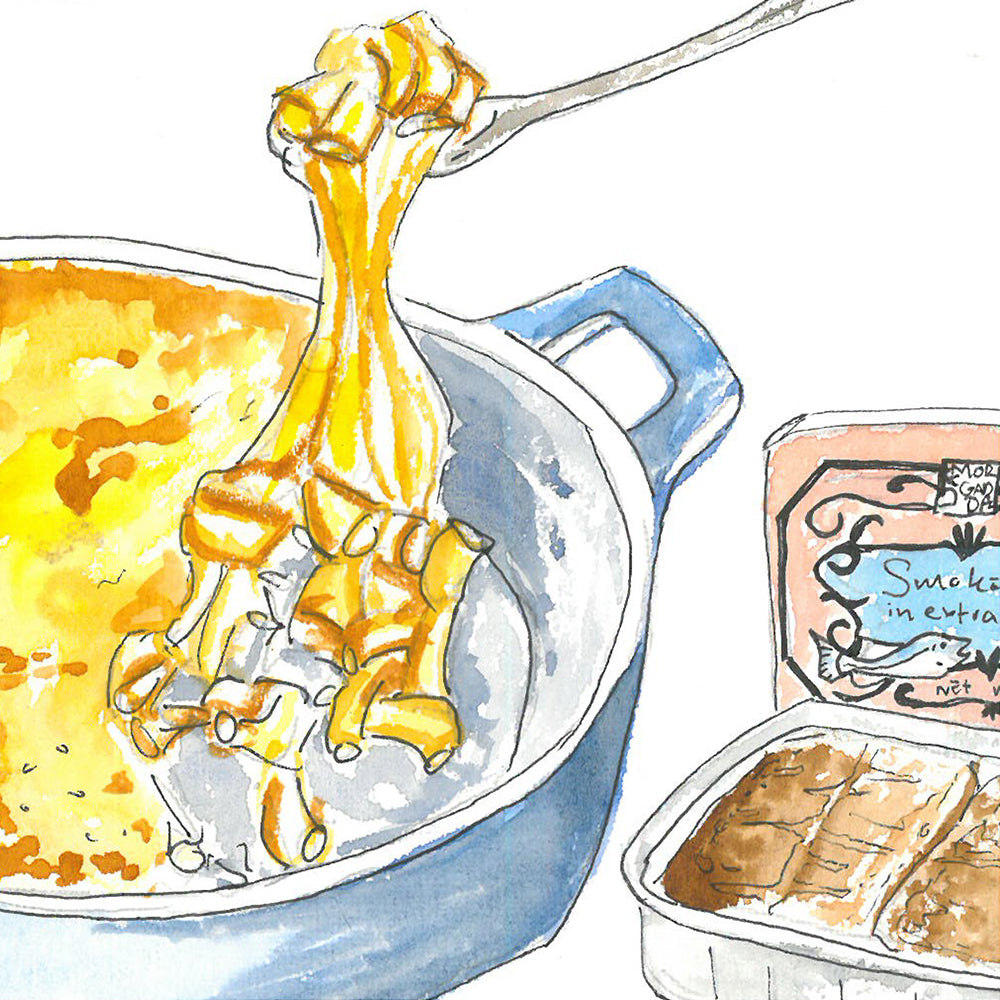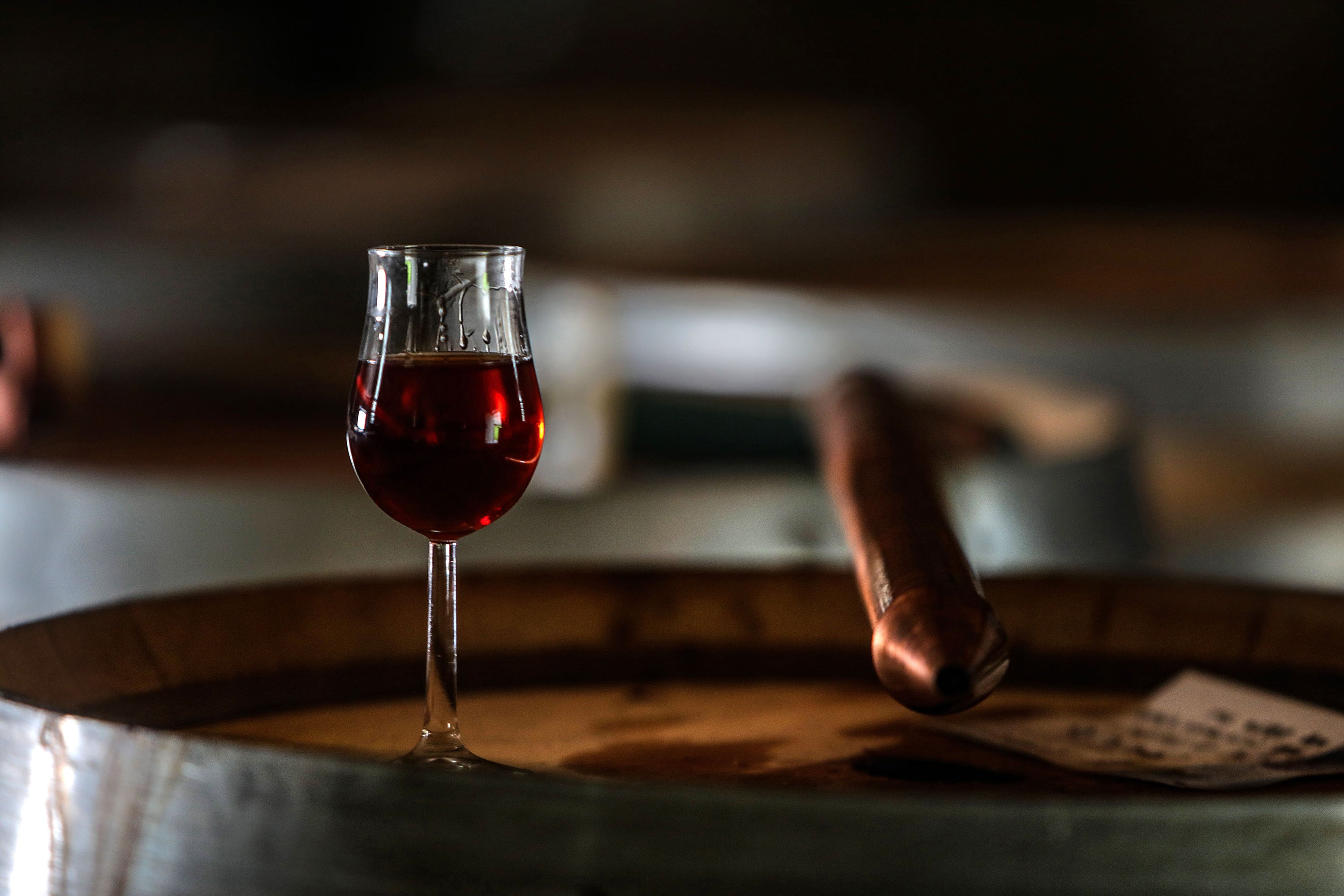What is it to be Wayward? In the case of Wayward Irish Spirits, it means following familial examples, passed down through generations, and building upon them to strengthen the O’Connell family tradition of doing things ‘their way.’ It means operating outside of the standard channels and educating oneself about the world as it is rather than how we would like it to be. It means opposing unjust systems and taking action, accepting your place as an outsider, content to make the difficult decisions in order to achieve valorous outcomes.
The O’Connell family is full of wayward heroes, willing to act in the name of what was right rather than what was expected. One such example of this is Maurice ‘Hunting Cap’ O’Connell, who in the eighteenth century, engaged in a campaign of overseas smuggling in response to the British stratagem of mercantilism. This article will explore events that preceded the emergence of widespread smuggling, looking into the reasons behind its prominence, the corruption behind its conception, and the men and women of Ireland – who like Maurice O’Connell – embodied the wayward spirit.
Mercantilism
The eighteenth century bore witness to the golden age of smuggling that emerged in response to contentious fighting between Britain and the three kingdoms of Ireland, Scotland, and Wales. The initial cause for conflict stemmed from grievances the Parliamentarians held against the English King Charles and his extreme religious and economic policies, w would result in the English King’s demise and a s monarchal respite until the deposed King’s son was restored to the throne just over a decade later. The return of kingship to Britain demanded expanded powers for the empire over its colonies and the usurpers it opposed and nowhere was this more achievable than through trade governance - and more specifically, mercantilism.
Mercantilism enhances state powers through governmental regulation of subordinate economies, and in the seventeenth century, Ireland fell right into the firing line of these expanded powers. The Anglo-Irish relations b mercantile interventions were complicated enough. Ireland was considered a dependent kingdom of England, and possessed a separate Parliament and the right to pass its own laws - but in truth - this Parliament was little more than a placating concession, granted under British rule and conducted under the watchful eye of English governance. The Irish could theoretically pass their own laws, but just as fast, the English vetoed those laws and impose their own with relative ease – which during the midpoint of the seventeenth century became the case with the Navigation Acts – a collection of laws that governed the seas, and in turn, Ireland.
The Navigation Acts imposed widespread restrictions on colonial trade and had a grave impact on Ireland as almost all imports that came from the colonies were prohibited from entering the dependent kingdom and the exportation of Irish goods to said colonies w greatly reduced also. These restrictions increased to the point that Irish cattle farmers were no longer allowed to export their herds to English merchants and the sale of wool worldwide was prohibited under English law. This last embargo, the sale of wool worldwide, was seen as the final straw in an ongoing saga, as Ireland - recognized as a dependent kingdom - was supposed to enjoy special liberties when it came to trade. But with the English mercantile machine in full swing, it seemed there was little else for Irish merchants to do - other than take matters into their own hands.
And so began the golden age of smuggling …
The English Response to Smuggling
The prevalence and effectiveness of smuggling during this period are contested for several reasons. First of all, there is the obvious issue that arises when reporting upon a clandestine operation, as those involved would have gone through great pains to hide their illicit activities - and second of all – it must be considered that those who campaigned in favor of lower duties and the lessening of strict restrictions would have overstated or exaggerated the illicit activities to see their ends met.
In fact, along the west coast of Ireland where Maurice O’Connell carried out his trade, the act of smuggling was so rife that entire communities were involved in keeping local activities under wraps. From Derrynane Harbor to the Cork markets there were special ‘butter roads’ used to transport imported contraband from one location to the next. But across the pond, how did the English fare with their fresh protocols intended to hinder smuggling?
The entire endeavor, from an English perspective, was in its simplest form, a self-contradicting bureaucratic nightmare where as soon as someone thought the system had been fixed, the statistics amended, and the sanctions perfected, a new method of evading proper reporting and stringent detecting was discovered. The smugglers would have had their schemes figured out beforehand - covert containers to hide their elicit materials, entrepot centers to store the cargo - but should a vessel have been apprehended, those caught would discover new methods for defeating the restrictions intended to hamper their best interests. In some cases, the volume of goods discovered was so low that the incurred fine from the discovered goods was less than the profit that would be made selling the goods that made it to shore. The smugglers could write off a portion of their cargo and still make enough profit to continue their activities. These monetized deductions dictated many illicit activities, as English investigations were often carried out on the word of ‘informers’ who would stake their word against the illicit traders, taking them to court on behalf of the Crown. These proceedings were conventional, with the informant acting as a representative of the Crown against the smuggler, content to receive a fraction of the found goods should the accused traders be found guilty – but if the informant was discovered to be unreliable – then the informant would need to incur the cost of the entire legal proceedings, leaving the innocent or perhaps not so innocent defendant free to roam.
It’s clear to see that this system had some issues. Was it not the financial strain imposed upon unreliable informants it was the strange loophole that meant duties on tobacco, tea, and brandy amounted to more than twice the cost of the individual commodities, meaning that keen smugglers could conspire with double-crossing informants to defraud the state, allowing half the untaxed goods to fall into the hands of the informant – as was stipulated under law – and then split the eventual profits right down the middle. The bedlam that ensued from these legislative loopholes was endless, and from ceaseless appeals to boundless delays, it seemed the mercantile laws intended to handicap the colonized economies were working against the Crown - and instead provided prosperous trade for those willing to take the risk.
The Irish Response to Smuggling
But how was smuggling dealt with in Ireland? And did the dependent kingdom use its ‘autonomous’ parliament to hinder the act? In short – not really.
It’s been mentioned that local communities came together to conceal the illicit activities carried out on the west coast, such as Maurice O’Connell’s import of butter and brandy – a precursor to the whiskeys found at Lakeview perhaps – but within the Emerald Isle, how were apprehended smugglers handled?
The Irish parliament in the eighteenth century did seem content to keep pace with its English neighbors in issuing sanctions to hinder illicit trade - but in truth - these sanctions were little more than reiterations of previous laws, updated with different language, but still stressing the same lenient points. Overall the attitude in Ireland concerning smuggling was rather favorable, with informers and informants seen as the lowest of low whilst those willing to run wool and other illicit goods were perceived as being justified in their endeavors. Irish concessions to the crime of smuggling can be seen in the relative absence of laws pertaining to wool-running and the less severe sanctions afforded to those who were caught in the trade. Some such cases of lenience involve a British captain who conspired with a customs collector, a garrison governor, and a port surveyor to facilitate the trade of illicit wool. When an informer caught wind of their operation and threatened to out the group, the British captain kidnapped the informant and held the man hostage. Never did the captain stand trial or face repercussions from the revenue – “as there is none here to see justice done.” Other accounts of lenience include a jury acquitting a smuggler for transporting enumerated soap from the colonies as the man claimed it to be ‘provisions’ and was at once edible and nourishing too. These kinds of tales that detail the Irish attitude towards smuggling go on and on - the rabbit hole endless. There are documented sermons that outline the outrage to trade embargos and campaigns forged in Westminster reveal the Irish and English wish to quell the effects of smuggling and disband mercantilism in equal measure. But that’s where the issue of fiscal motivations hidden beneath a veil of protectionism becomes impassable – because if an empire is unwilling to profess its boundless ambition and inherent intolerance to cede power to its dependents - how then can the issue of lopsided trade be remedied?
The End of Smuggling
Until the conflict between the feuding countries was remedied, conditions for those involved in the world of smuggling worsened considerably. The romanticism attributed to the trade all but vanished, and where there were once loopholes and extravagant plots that saw investment doubled on a whim, there existed now tighter restrictions and more heinous punishments - the sort that one does not walk away from - as the death sentence was implemented against not just those caught smuggling illicit items, but also those preparing to smuggle – it even included those who harbored known smugglers. The implementation of such extreme measures pushed smuggling to the outskirts of lawlessness and into the hands of gangs, whose aim to achieve monopolies across the seas resulted in widespread violence and increasing aggression to achieve their ends. The two poles of extremism found across lawless lawfulness and lawful lawlessness became so obscured that public support for smuggling atrophied, the line between order and disorder unintelligible and marred with violence. In Southeast England, the trial of the notorious Hawkhurst Gang made clear the brutal nature of modern smuggling and derailed public support altogether. The once noble act exacted against rich crooks had been adopted by crooks seeking to obtain wealth beyond compare. The lack of public support didn’t deter smuggling though, and the game of cat and mouse between law enforcement and smugglers continued until eventual equilibrium was achieved.
The end of smuggling can be attributed to watch towers and the establishment of the coast guard at the beginning of the nineteenth century - but to put it plainly - the end of smuggling came as a consequence of diminished profits – for the smugglers and the empire. The British Empire had lowered its stamp duties and adopted a free trade policy, that within ten years, almost eradicated the need for smuggling in altogether.
This muted end does seem quite the anti-climax for a rambunctious operation that once fueled countless fictions and boundless ballads, the act itself swarming with enough imagination to excel in the face of unjust policies and self-enriching aims - but it’s only when we consider these facets and the ease at which such an empiric operation came to an end that we can start to scrutinize the relative complexities and oftentimes inane simplifications that govern far-reaching empires and prove detrimental to overseas dependents.
Maurice O’Connell and other Irish smugglers were wayward by nature, willing to stand against the whims of a power-hungry empire that would handicap its dependents and their local economies in pursuit of unconscionable control. The names of those involved in the trade were sullied by the people entrusted with keeping the peace and the instigators who would decimate livelihoods to further their own interests. The golden age of smuggling is a fascinating time in world history, a classic case of action and reaction, where the line of what is right and wrong is blurred and obscured to the point where one must ask the question – who is really wayward? Was it those who wished to take control or those who wished to win it back?



